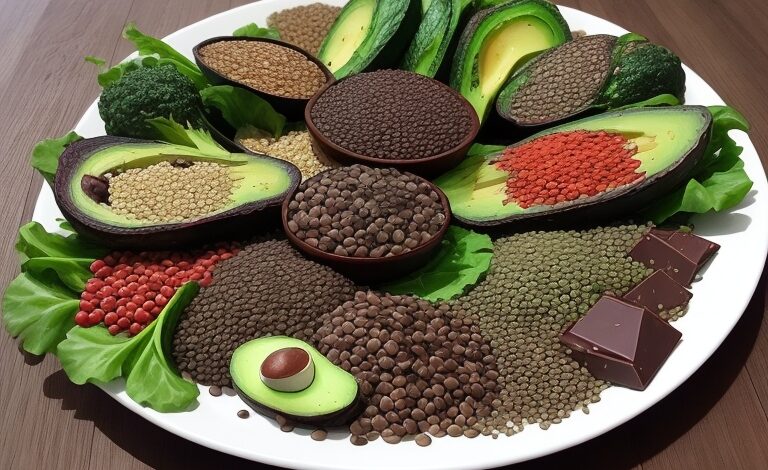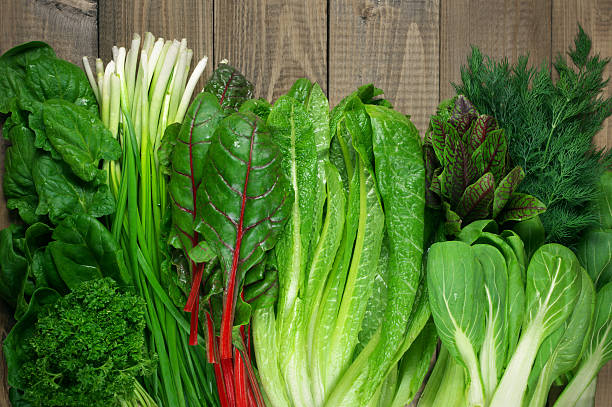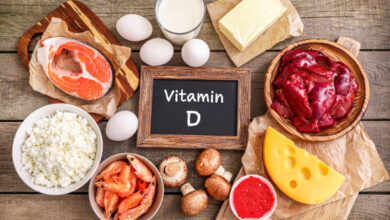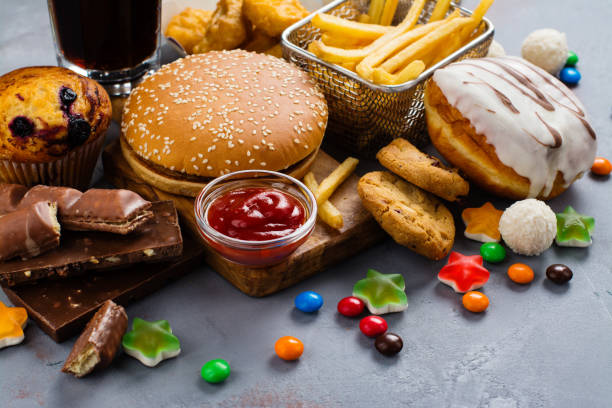
7 Nutrient-Rich Foods to Alleviate Anxiety
A mounting body of research indicates that our food choices not only impact our bodies but also influence our mental well-being. The evolving discipline of nutritional psychiatry delves into how the consumption of specific foods may contribute to enhanced mental health. Several studies propose that a range of foods can potentially elevate mood, enhance cognitive function, and mitigate the effects of depression and anxiety.
According to Uma Naidoo, a nutritional psychiatrist and the director of nutritional and lifestyle psychiatry at Massachusetts General Hospital, adopting an anti-anxiety diet can be a potent tool for enhancing our mental well-being. She highlights that this approach is just one of the multiple strategies available to help soothe the mind.
In her latest publication, “Calm Your Mind With Food: A Revolutionary Guide to Controlling Your Anxiety,” Naidoo delves into the relationship between the gut and the brain. She notes that some of her patients struggle to accept that the gut, physically distant from the brain, could impact their mental well-being. However, the gut and the brain maintain an ongoing dialogue concerning digestion, appetite, and even emotional state.

Scientists have long acknowledged the significant connection between the gut and the brain, with some even describing the gut as the ‘second brain,’ according to Naidoo.
The vagus nerve, originating in the brain and extending through the abdomen and intestines, contributes to the manifestation of anxiety in the stomach. Additionally, serotonin, a crucial neurotransmitter that impacts mood, is predominantly produced in the intestines, further emphasizing the link between the gut and the brain.
Recently, researchers have increasingly focused on the gut-brain axis, which serves as the communication network between the central nervous system and our gut microbes. This area of study has become pivotal in examining the connection between mental health and the microbiome. Imbalances in gut microbes have been linked to anxiety and depression.
Eating habits can significantly impact our microbiome, and Naidoo suggests that by making informed choices about our diet and minimizing the consumption of harmful foods, we can enhance our mental well-being. The core recommendations are straightforward: Naidoo advocates for a diet rich in whole foods like fruits, vegetables, legumes, and unprocessed grains. She also advises against consuming refined carbohydrates such as refined wheat flour, foods with high-added sugar or artificial sweeteners, and the unhealthy fats commonly present in packaged snacks and deep-fried foods.
Dr. Naidoo also advocates for an anti-anxiety diet, which focuses on consuming specific foods to promote mental well-being and induce relaxation. This approach is designed to complement existing anxiety treatments, offering an additional strategy to address anxiety symptoms, according to Naidoo.
In our discussion with Naidoo, she highlighted seven key foods that are integral to this diet.
Intense Dark Chocolate

Enjoy a few small squares of intense dark chocolate every other day, as recommended by Naidoo. For an added boost, pair it with citrus fruits such as clementine or orange slices. Intense dark chocolate is packed with iron and polyphenols, which are plant compounds associated with various health benefits. Research has shown a link between iron deficiency and anxiety, whereas cocoa has been demonstrated to improve mood. Additionally, citrus fruits contain vitamin C, which has been proven to aid in iron absorption.
Seek out dark chocolate with a cacao content of 75 percent or higher. According to Naidoo, this product should not be mistaken for a typical candy bar, as the advantages of milk chocolate are outweighed by its added sugar..
Nutrient-Rich Leafy Greens

Leafy greens are rich in fiber, folate, iron, and other essential micronutrients, noted Naidoo. Additionally, they contain lutein, an antioxidant that research has demonstrated can decrease depression in mice. Naidoo suggests incorporating various types of colorful leafy greens into salads. Furthermore, you can prepare spinach by steaming it, stir-fry different varieties of leafy greens, or incorporate them into soups.
Cruciferous Vegetables

Cruciferous vegetables such as broccoli, cauliflower, Brussels sprouts, and cabbage are a crucial component of the anti-anxiety diet, according to Naidoo. They contain high levels of sulforaphane, a potent phytochemical that she stated “assists in addressing the inflammation that we aim to counteract in the digestive system.”
To preserve the sulforaphane levels in broccoli, it is recommended to chop it before cooking. After chopping, allow the broccoli to sit for 30 to 60 minutes before refrigerating. If preparing broccoli for dinner, it is advised to cut and clean it in the morning, then store it in a clean baggie in the fridge until use.
The Benefits of Avocados

Avocados are packed with fiber, potassium, vitamin E, and magnesium. A low magnesium intake has been associated with depression, and research suggests that increasing magnesium may help alleviate anxiety symptoms, although the evidence is not conclusive.
Naidoo advocates for prioritizing magnesium-rich foods, despite the somewhat mixed results. She strongly encourages ensuring an adequate intake of magnesium due to its significance in various anxiety-related conditions. Naidoo suggests incorporating a quarter to half of a small avocado into your diet several times a week. Whether in the form of guacamole, sliced avocado with scrambled eggs, or avocado toast on sourdough bread. Highlighting its nutritional density, Naidoo describes avocado as a powerhouse food. That provides an array of essential micronutrients and macronutrients in a small serving.
The Soothing Effects of Green Tea

According to Naidoo, consuming green tea throughout the day can have a calming impact. Which goes beyond the immediate relaxation that comes from savoring a warm beverage.
“Green tea contains two potent antioxidants: EGCG (epigallocatechin gallate) and L-theanine,” Naidoo explained. A research study conducted in Japan found that L-theanine supplements reduced symptoms related to stress, such as depression and Anxiety.
Naidoo suggested that keeping caffeine intake below 400 milligrams a day is acceptable for individuals with anxiety. Green tea contains caffeine, which can exacerbate anxiety when consumed excessively. An eight-ounce serving of green tea typically contains 30 to 50 mg of caffeine. Making it unlikely to surpass this limit unless combined with other caffeinated drinks. Additionally, Naidoo advised against consuming green tea late in the day to avoid potential sleep disturbances. Emphasizing the importance of timing.
Chia Seeds and Flaxseeds

Fatty fish, chia seeds, flaxseeds, and walnuts serve as excellent sources of omega-3s, vital for brain health and development.
While omega-3 supplements are popular, new findings indicate that marketers may have exaggerated the cardiovascular advantages. According to Naidoo, many studies demonstrate that dietary sources of omega-3s yield superior outcomes.
To individuals consuming fish, Naidoo suggests integrating salmon into their dietary regimen. For those adhering to a plant-based diet, she recommends consuming ¼ cup of seeds daily. Consider incorporating a tablespoon of chia seeds and flaxseeds into salads and smoothies, or stirring them into oatmeal.
The Importance of Beans and Lentils for Gut Health

Beans and lentils, as legumes, serve as excellent sources of fiber, according to Naidoo. This nutrient is crucial for maintaining gut health. A cross-sectional study from 2021 suggests that diets high in fiber are associated with reduced levels of anxiety.
Naidoo explained the benefits, stating, “Fiber is advantageous as these foods consist of complex carbohydrates. That breaks down slowly in the body, preventing insulin and blood sugar spikes.”
The difference in nutritional value between canned and dried beans is minimal, according to the expert. Choose the option that suits you best, with dried beans being more cost-effective. Incorporate them into stews, soups, salads, and spreads.





